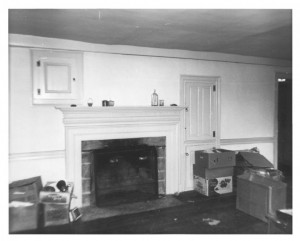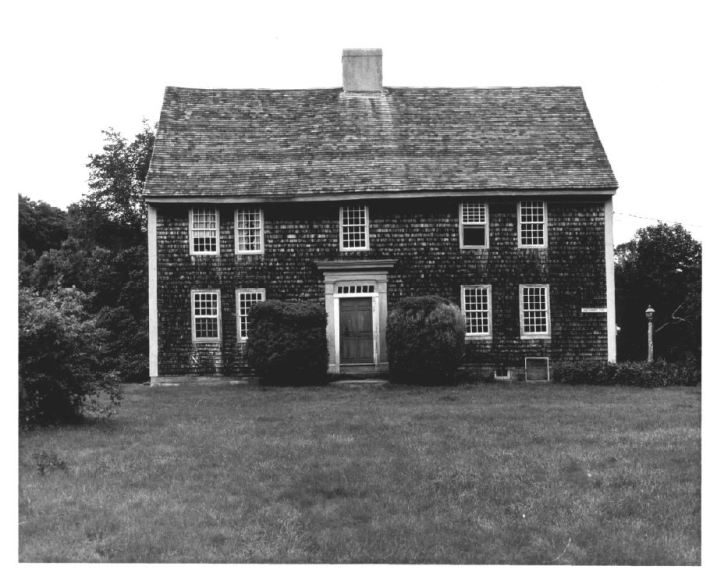Randall’s Ordinary was the dream of Connecticut natives William and Lucinda Clark. Fascinated by the colonial lifestyle and open-hearth cooking, Bill and Cindy purchased the John Randall House in North Stonington in 1986. They converted the house, which dated to the 1680s, into a restaurant and inn that offered guests colonial-style food and accommodations, all prepared using traditional 17th-century methods.
An “ordinary” was a term used for a tavern or an inn during in the 17th and 18th centuries. The one opened by the Clarks hundreds of years later utilized the two giant fireplaces found in the Randall House to prepare foods in antique pots and kettles hanging over open flames. The proprietors of Randall’s Ordinary prepared fresh-baked breads and roasted meats, such as goose and venison, using pre-Revolutionary War recipes and wore period-style clothing to enhance the diners’ experience.

Interior, west front room, John Randall House, North Stonington, ca. 1978 – National Register of Historic Places
In 1987, the Clarks looked to expand guest capacity at the inn. The owners decided to have a 32-foot-high barn (originally built in 1819) relocated to their property from Richmondville, New York, to provide the extra space needed. The Clarks then spent most of the next 8 years living out their dream of providing guests with a re-created colonial living and dining experience until selling their business in 1995 to the Mashantucket Pequot Tribal Nation, which purchased it for a reported $1.4 million.
The Early Randall House
Much of the colonial mystique of Randall’s Ordinary came from the Randall House itself. The Randall family came to the North Stonington area after arriving from England in the 1660s. They built a home in 1685 that eventually became an inn, and the property remained in the family through much of the 19th century. Town records indicate that the Randalls were abolitionists, slowly freeing family slaves during the early 19th century and offering escaped slaves journeying along the Underground Railroad sanctuary in the house. After ownership by the Randalls ended, the property fell into disrepair until a man named Harvey Perry purchased it in 1926 and undertook its restoration, which, in turn, allowed the Clarks to successfully run their operation 60 years later. After the Mashantucket Pequot Tribal Nation purchased Randall’s Ordinary, it continued operations until being closed in 2006.








